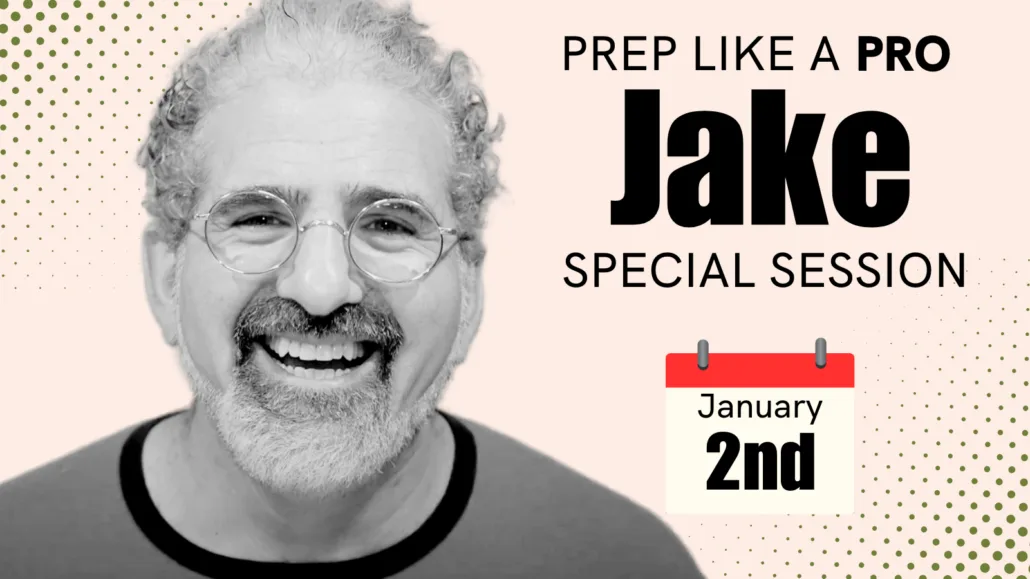
I was lucky enough to see Saltburn by Emerald Fennell at an advance screening at the Austin Film Festival last month. It was a packed house!
(And by the way, while we’re talking about Austin Film Festival, a shout-out to our six students who were finalists. Eric Potempa, Jonathan Finnegan, Kelly McAllister and Nancy Safavi were all finalists for the pitch competition with Nancy taking third place overall. Erin Brown Thomas was a finalist for her short film, Subtext. And Meredith Allen, former student and former faculty member at Jacob Krueger Studio, was a finalist for her horror film Sensei. We’re just so proud of all our alums who are out there doing amazing stuff and having such incredible success.)
There is so much that we can learn as screenwriters from Saltburn. It’s one of those films that pushes the edges in every way – that makes you laugh in the most uncomfortable ways, that makes you feel, that both entertains you and concerns you.
Saltburn, is of course, Emerald Fennell’s follow up to Promising Young Woman. By looking at a movie that takes everything this far, we can learn about tone, we can learn about genre, we can learn about writing characters that should be unlikable and still make the audience fall in love with them.
To really help you understand Saltburn, I’m going to have to reveal a few spoilers right at the very beginning. So if you don’t want the film spoiled, you might want to watch it first. If you read on, I’m going to give you enough context to understand what we’re talking about here.
In a lot of ways, you can think of Saltburn like The Talented Mr. Ripley on steroids.
It’s The Talented Mr. Ripley with the volume turned up even louder, with things pushed to even more ridiculous extremes.
Structurally, Saltburn is built on a thriller framework. The genre elements and the genre structure of Saltburn are pulled directly from thriller.
It’s a story about a young man, Oliver Quick, played by Barry Keoghan. He’s a student at Oxford University and he’s super bright but he has no money. And at Oxford that means he’s a bit of an outcast.
He develops a sexual attraction and a friendship attraction towards Felix Catton, a ridiculously wealthy student who lives in a grand castle. Felix has everything that Oliver has ever wanted.
Emerald Fennell talks about the film as a Gothic romance. To her, this story could just as well be Heathcliff in Emily Brontë’s Wuthering Heights, a story of a really complicated unrequited love.
But at the same time Saltburn is a Gothic romance with a lot of twisted stuff happening, it’s also a thriller. It’s also a pushed to the limits version of The Talented Mr. Ripley.
Emerald Fennell’s screenplay for Saltburn is fusing genres in ways we can all learn from as screenwriters.
So here’s what happens. Felix becomes Oliver’s best friend and invites Oliver to live with him at his ridiculously huge castle estate, Saltburn, for the summer because Oliver has nowhere to go.
Oliver has told Felix that his mother is a drug addict, that his father has died, that he doesn’t speak to his family. He has nowhere to go. He has no finances. And he basically becomes not only the friend but also the plaything to this ridiculously privileged kid.
Felix is incredibly sexy. Every woman in the world is just throwing herself at him. And although it seems like it’s an unrequited love story, it certainly seems like there’s some kind of attraction between Oliver and Felix.
In fact, Oliver’s opening voiceover tells us, “I loved him.” So we know that this is a story about love. We know this is Gothic romance. But that Gothic romance is laid over this really interesting infrastructure that you could take from any thriller.
There’s an “homme fatale” (Oliver) who is not who they seem to be, who infiltrates Felix’s life and starts to destroy him. It’s The Talented Mr. Ripley. It’s The Hand that Rocks the Cradle. It’s Cape Fear. A classic thriller setup.
So we start off in this Gothic romance for about half an hour. And then things start to take darker and darker and darker turns. Because what has really happened is that Felix has invited a “vampire” into his house.
Not a literal vampire but someone who’s literally going to suck the life out of every one that Felix loves– out of Felix’s mother, out of his father, out of his sister, and eventually out of Felix himself. If you’ve seen the movie, you know why Oliver refers to himself as a vampire.
So we’re going to watch this really complicated dark thriller happening through the lens of a Gothic romance.
Saltburn is a helpful illustration of how much flexibility you have with genre as a screenwriter.
This is certainly not the only example of a film that combines genres. We’ve talked about Everything, Everywhere, All at Once, for example, which combines character-driven drama with the sci-fi action movie format.
Another example: American Beauty was originally written as a whodunnit. It was all about who killed Kevin Spacey’s character, Lester. And you can see that those bones are still there. Everybody has a motivation to kill Lester. And those whodunnit bones are still there, even though it became a movie about transcendence.
In Saltburn, we have these thriller bones underneath, but they’re subverted by this Gothic romance. And then they’re subverted even more, because a normal thriller makes you feel scared all the time. A normal thriller is all about the creepy music. It’s all about getting your heart racing.
Saltburn does exactly the opposite. It’s building on this infrastructure that’s very familiar, but it feels completely new and fresh.
Instead of using its genre infrastructure to scare you, Saltburn uses that infrastructure to make you laugh.
It uses that infrastructure to make you feel uncomfortable, in your own complicity with privilege and with desire, and the things that we’re willing to do for desire.
Now, we’re (hopefully) not willing to do any of the things that Oliver’s willing to do for desire. But by blowing up the extremes of privilege and the extremes of our culture’s desire to attain that kind of access, and by pushing that through this Gothic romance/Thriller format, we end up with a completely new genre that can really only be called “Emerald Fennell.”
Genre, like tone, is tremendously flexible. You can write 100 horror movies that all have the same kind of general arc. And then you can write a Scream where you subvert that.
And Saltburn is doing the same thing. It is subverting these genres. It’s not Call Me By Your Name and it is not Emily Brontë. And it is also not The Talented Mr. Ripley.
It is somehow the amalgamation of all those elements pushed through this bizarre comic lens.
We’re going to look very specifically at one scene that really shows you how this works. But first, I want to talk about Oliver Quick. Because Oliver should be a person that we don’t like.
Saltburn challenges our assumptions about what makes a likable main character in a screenplay.
During the post-screening Q&A at Austin an audience member asked Emerald Fennell, “What was it like to write a sociopath?”
I thought her answer was one of the most brilliant and helpful that I’ve heard:
“Oh, I don’t think of him as a sociopath. I just think of him as somebody who desperately wants something.”
This is one of the key lessons in writing a likable main character.
Somehow we’re rooting for Oliver, even as he does the most horrible possible things. We are rooting for him, we are caring about him, we are loving him. We are laughing. We are going on a total joyride, and we are feeling unusually uncomfortable all at the same time.
What we’re connecting to is his desire.
This is the most important lesson from Emerald Fennell’s Saltburn. Do not put your characters in a box. Don’t put your genre in a box.
Just because you’re writing a thriller or a Gothic romance or a comedy doesn’t mean that there can’t be something real and complicated and subversive underneath. Just because you’re hitting those genre beats does not mean that you have to hit them in the way other people do.
And the same thing is true with your character. Do not put your character in a box. Don’t put a label on them. Don’t tell them that they’re a sociopath, that they’re ADD, that they’re depressed or anxious. Don’t put them in these adjectival boxes. Don’t give them syndromes.
And by the way, don’t do this to yourself either!
If you have mental health issues, get yourself the help you need. But don’t put yourself in the box of your condition. Think of yourself like you think of a character. These characters are just people who want things, and try to get them in their own, very specific ways, and that’s what makes Oliver accessible.
If you write Oliver from Saltburn as just a “sociopath,” he’s not accessible. If you write Mr. Ripley as just a “sociopath,” he’s not likable. He becomes a stereotype. He becomes impossible to root for.
Oliver is simply “a character who desperately wants something.”
In Oliver’s case, he desperately wants access. He wants a life of magic. He wants to be part of the elite. He wants to stay at Saltburn. It’s the only thing he wants and he’s willing to go to tremendous lengths to get there.
So don’t put your genre in a box. Don’t put your character in a box. You can play within genre rules, but you can also subvert those genre rules.
Every single character in Saltburn is “unlikable” and horrible in some way. And still we love them.
You have Farley, who’s basically the equivalent of Oliver, another plaything of this family. But Farley has a much firmer place in this home. He’s playing his own game to get to stay, and he will end up getting caught up in Oliver’s game.
You’ve got mom and dad. They’re absolutely awful people – each in their own unique way.
And so is Felix.
For all the kindness that Felix shows Oliver, and all the empathy that creates for him, there’s always a little moment in every scene where you can see the awfulness of him, too.
So this is a cast of awful characters. And yet, we love them all. And we love them all because they are not being stereotypical “one percent” awful people. They are being specifically themselves, specifically awful people.
This is a concept that we call the how of your character.
Instead of thinking about what “type” of character you are writing, or what makes them “likable” ask yourself instead what do they want and what is their how as they try to get it?
Think about the obstacles that they are trying to overcome, that force them to push the how further.
In Oliver’s situation, he would be happy staying at this house forever. Except he’s got a problem. Farley’s trying to push him out.
He has a little affair with Felix’s sister, which he thinks is going to help him get in. But it ends up having the exact opposite effect. It makes Felix want to kick him out. So he has to start to disavow that that ever happened.
And then, then the big awful thing happens for him, which is going to lead to a complete shift in tone for the rest of the film.
For the first third of Saltburn, we’re essentially watching a Gothic love story. We’re watching something like Call Me By Your Name, a story about these two very different boys who are falling in love. Or at least falling in friendship.
They’re falling in something. And they are becoming close.
We don’t know if it’s going to be an unrequited love story or a requited love story, but we know that there’s something deep and emotional happening.
We have little tastes of the thriller flavor, mostly done through the voiceover. Oliver’s first words are, “Of course, I loved him.” Which tells us, oh, maybe this didn’t end well, maybe this guy isn’t here anymore.
We’re getting little tiny hints that maybe this is going to a dark thriller place. But we don’t really know where it’s going. We think we’re in this Gothic romance.
Then things start to get really dark and uncomfortable– in a sexual way. First with the little affair with the sister. If he can seduce her, maybe that’s a way to get his need met.
So we get a very explicit little “vampire” scene with Oliver and Felix’s sister, Venetia, which Felix has a bad reaction to.
And then we start to see the lies. We start to see what Oliver is willing to do to stay.
But we don’t know if Oliver is really a bad person with bad intentions, or if he’s just afraid of losing his friend–if he’s just a normal young kid making some bad decisions.
We don’t know how dark things are actually going to get in Saltburn until Felix comes up with a brilliant idea: Felix is going to take Oliver home.
Remember, Oliver’s story is that he’s estranged from his drug addict mother, that he’s lived this horrible life of poverty. His father’s dead and he’s not speaking to his mother.
And Felix decides he is going to heal this relationship.
He contacts Oliver’s mother using his cell phone and arranges a surprise visit. But when they arrive at her house, we get a couple of big surprises.
(Warning: Here are where the real spoilers start.)
Number one, they live in a nice middle-class home. Oliver’s not poor. He’s middle-class.
Number two. Mom isn’t a drug addict. In fact, Mom is a sweet, loving, relatively healthy person.
And number three, Daddy is alive.
It’s all lies.
And of course all this happens on the eve of Oliver having a birthday party, Saltburn style– meaning a gigantic Gothic masked ball.
It’s extreme. Extreme amounts of people, extreme amounts of drugs, extreme amounts of costumes, extreme amounts of everything.
So they come back. And Felix has basically told Oliver, that he’s not going to get what he wants. He can have his party. Felix isn’t going to tell anybody tonight, but then tomorrow, he’s going to have to leave.
And this is when things start to get really dark.
By the end of the party, Felix is dead.
And we kind of know Oliver did it but we also don’t know. We don’t know for sure. Because there were a lot of drugs happening and it seems that Felix overdosed.
And then, before long, the sister, Venetia, is dead.
But with her we know. We know what happened, even though to the family it looks like a suicide.
Felix’s Dad and Mom are in mourning, they’ve now lost both of their children. At this point, we know Oliver is responsible.
But Oliver’s not just being a “sociopath.” He’s a character pursuing a want – he’s trying to stay. He just has a perverse how.
Venetia is dead because she’s figured Oliver out.
Felix is dead because he was going to kick Oliver out.
And Felix’s Mom has a soft spot for Oliver. But in general, she likes taking care of birds with broken wings.
Felix’s Dad sees that Felix’s Mom is starting to transfer her love for Felix on to Oliver, and he knows that’s not good, and that’s not healthy.
He just wants to mourn in peace. So he pays Oliver off to leave and Oliver takes the money, in a really extraordinary scene.
When we next see Oliver it is years later. He “accidentally” bumps into Felix’s mom at a coffee shop. Except we know it’s not accidental because he’s reading news about the Dad’s death.
And Mom, of course, always having had a soft spot for Oliver, invites him back to Saltburn.
And then we get this really incredible abrupt cut. Mom is in a hospital bed on a respirator in one of the wings of her house.
And we build to this incredibly disturbing sequence where Olilver pulls her breathing tube out and then does this crazy naked dance through the house.
You can see that all the elements of Saltburn I pitched you could be horror elements. A murdered friend. A fake suicide with a bathtub filled with blood. The destruction of a mother’s life. And then even her murder.
We’ve watched this kid destroy an entire family, but Saltburn doesn’t play out like horror. It’s plays out like comedy.
All of structure is just a journey to get what you want.
And somehow Oliver has gotten what he wanted. He has taken over Saltburn.
With tone, you have total flexibility, you can actually do anything you want, a Gothic romance element, a thriller element, a horror element… and if you treat it properly in the writing, it will take on any tonality that you want.
Many years ago, I was working with a student who was writing his first comedy. “Jake,” he said, “I’m scared. What if it isn’t funny?” And I said, “Well, then you will have written a drama.”
And that’s OK. It’s okay if your screenplay takes you to a tone you didn’t expect.
But taking a drama and making it a comedy actually just requires layering a different kind of tone over it.
Which brings me to one more scene I want to discuss from Saltburn. This is potentially the most disturbing scene in Saltburn.
(Warning: If you haven’t seen it yet, stop reading. Come back when you’ve seen it.)
So track the way the tone shifts in this scene.
Oliver has killed Felix, this boy that he’s in love with. And we follow Oliver to Felix’s grave.
First, we watch Oliver in the dirt. He’s in his suit, and he is lying in the dirt of Felix’s grave. And we want to cry for him, even though we suspect that he’s probably the one who murdered Felix.
Because we understand we’re watching a Gothic love story here. We’re watching the story of a young man who killed the person he most loved and most wanted because he didn’t want to lose his place in the world. Because he didn’t want to lose his access.
And we’re watching this genuine mourning. And even though you suspect Oliver at this point, you kind of also want to cry for him. And we linger on this mourning for way longer than we should.
Until you actually start to feel something and you start to feel uncomfortable.
And until you start to wonder, he’s going to do it, isn’t he?
And of course, then, Oliver starts to hump the grave.
And by the time it’s over, he is naked having sex with this grave.
And Emerald Fennell just holds the camera there.
So you kind of go through “I think he’s gonna do it. No, he’s not gonna do it. Oh, he is going to do it. Oh, he’s unzipping. Oh, oh, he’s still doing it.”
The effect of this scene on the audience watching Saltburn is absolutely fascinating.
The audience begins in this place tonally, and from a genre perspective, of Gothic romance, where we actually feel genuine emotion.
And then we go to this place of discomfort because we’re telling ourselves that something’s going to happen that we don’t want to happen. Something that’s going to gross us out and make us uncomfortable.
But it goes on so long, we sort of think, with relief, maybe it’s not going to happen.
And then Emerald Fennell just keeps the camera there, and it starts to happen.
And the audience is groaning with discomfort.
But instead of giving up, Emerald Fennell just holds the camera there. And so your groans of discomfort soon become groans of laughter. And as it continues and continues and continues, soon you have a whole theater full people roaring with this uncomfortable laughter.
We’re uncomfortable because we’re complicit. We know we should not be laughing and yet we are.
Saltburn is a master class in tone.
You can take the same scene and move it from the most connected, profound drama to the most absurd, uncomfortable comedy and hit all those points in between.
This shows you that tone is just execution, it’s just craft.
Because all writing actually begins with the same thing. It all begins with drama.
It actually all begins with a character who wants something, who has a unique how of trying to get it, confronting huge obstacles that will force them to reveal how they are different from any other character.
And when you write characters like that, you as a writer get to reveal your how, which doesn’t come from writing the thing that’s easy.
Your how doesn’t come from following the rules that everybody else is following.
Your how comes from the same things your character’s how comes from.
It comes from obstacles. It comes from choices.
Nearly every choice Emerald Fennell makes in Saltburn seems like a crazy choice! She even shoots Saltburn in 4×3 format.
That is an extremely challenging choice commercially, but she’s doing it for artistic reasons.
She wants it to look like the sort of old painting you would see in a place like Saltburn. She’s making a Gothic romance.
I can tell you, as we came out of the theater, even though everybody was laughing during the movie, and some people practically had their arms in the air in triumph as they filtered out, others were really uncomfortable.
And that’s okay too.
Your job is not to please everybody. Your job is not to follow the rules.
Your job is to set a goal for yourself that’s a little harder than you can attain.
And then to make the bravest, boldest choices that you possibly can make.
So that as you achieve that goal, you reveal your how.
You cannot write like Emerald Fennell. Only Emerald Fennell can write like Emerald Fennell.
And that’s why she’s had the success that she’s had.
You have to do the same thing for yourself. And part of that is setting a goal that’s a little harder than you can achieve with your current skill set.
How do you tell a Gothic romance that’s also a thriller that’s also funny? That is an insane, nearly impossible artistic choice.
How do you tell a story where everybody’s a terrible person but we love them?
You can see, in writing Saltburn Emerald Fennell has given herself an impossible, impossible task. But by achieving it, she’s revealed her how in such a profound way that you cannot take your eyes off of it.

I hope that you enjoyed this podcast. If you are getting a lot out of it and it’s helping your writing, come and study with us. We have a free online class every Thursday night, foundation classes in screenwriting and TV writing, a Master Class for those of you who want a grad school education at the tiniest fraction of the cost, and a a wonderful ProTrack mentorship program that will pair you one on one with a professional writer, who will read every page you write and mentor you through your entire career at less than you would pay for a single semester of grad school.
(And don’t miss our FREE Pitch Festivus workshop and Pitch Party, Dec 7, 2023).





